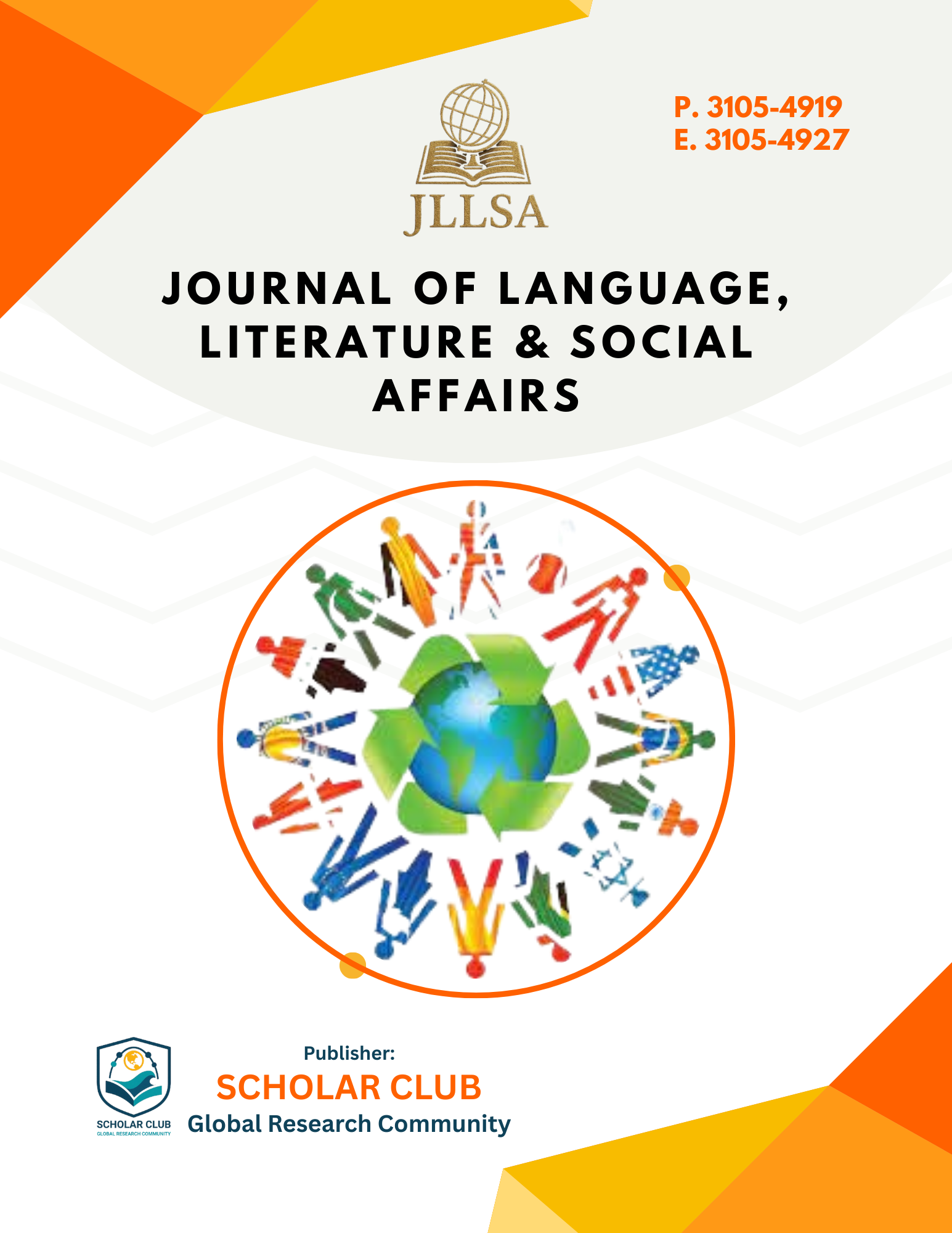A Marxist Analysis of Class Struggle and Materialism in Guy de Maupassant’s The Necklace
DOI:
https://doi.org/10.63056/jllsa.1.4.2025.72Keywords:
inequality, illusion, Marxist criticism, Marxist literary theory prosperity, qualitative method, textual analysisAbstract
This paper analyzes The Necklace (1884) by Guy de Maupassant based on the Marxist literary theory; specifically, the issues of the class struggle, materialism and capitalist ideology. The study follows a qualitative method with the use of textual analysis, which is backed up by secondary sources in the form of scholarly articles, books, and critical essays. The study was directed by three goals which included to identify the reflection of class struggle and social disparity in the story, to explore how materialism and false consciousness influenced the destiny of Mathilde Loisel, and to understand how Maupassant criticized the ideology of capitalism and how it changed the identity and desires of individuals. Results indicate that it is not personal misfortune and disappointment that lead Mathilde to her downfall but rather a manifestation of structural inequalities that were supported by ideology. The necklace is used as fetishized commodity which shows the distortion of human identity and propagation of illusion of prosperity and wealth by capitalist values. The realist narration by Maupassant shows how the desires of capitalism lead to alienation, exploitation and wastage of lives and the irony of the unnecessary sufferings by Mathilde. The research leads to the field of literature by establishing the applicability of Marxist criticism to the discovery of the ideological aspects of literature, and the research provides current literature with its timeless value of exploring the issue of consumerism, inequality, and the struggle of classes in past and present.
Downloads
Published
How to Cite
Issue
Section
License
Copyright (c) 2025 Savaira Munir

This work is licensed under a Creative Commons Attribution 4.0 International License.







